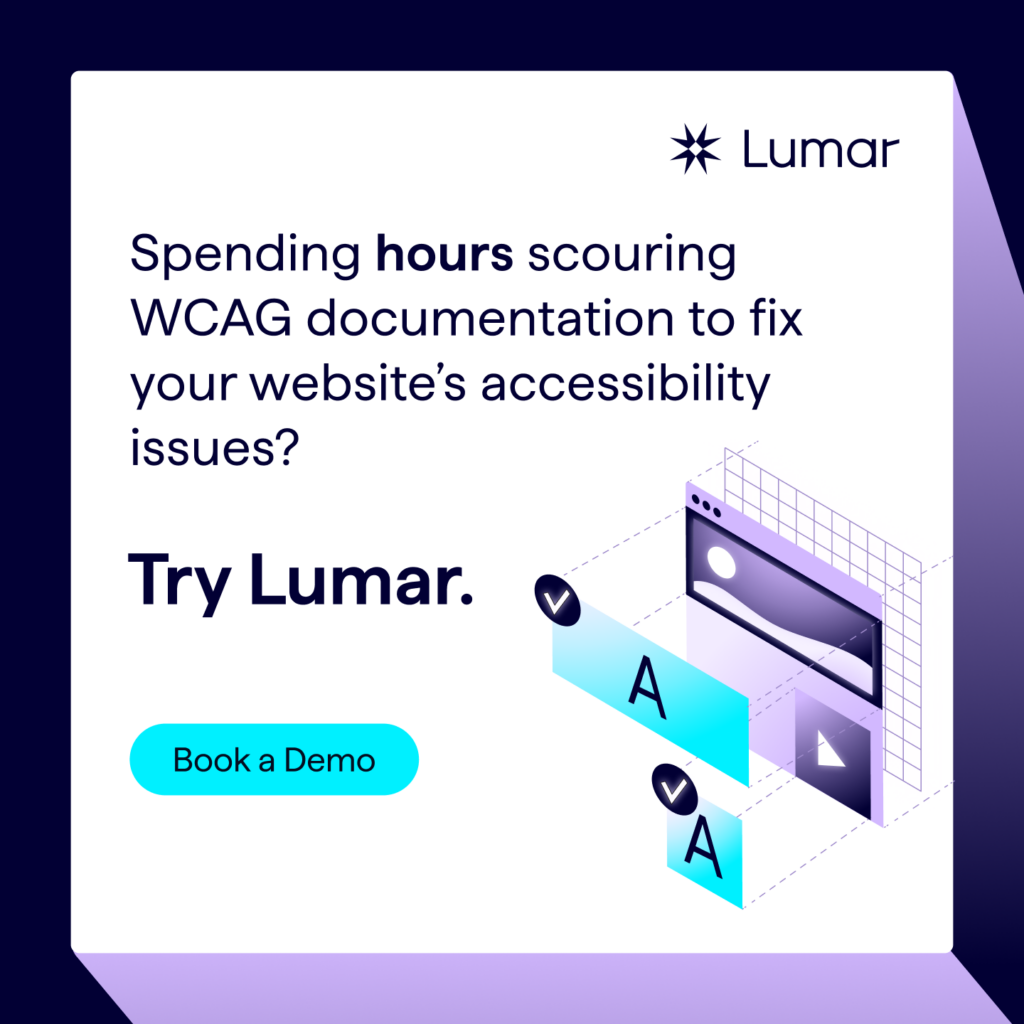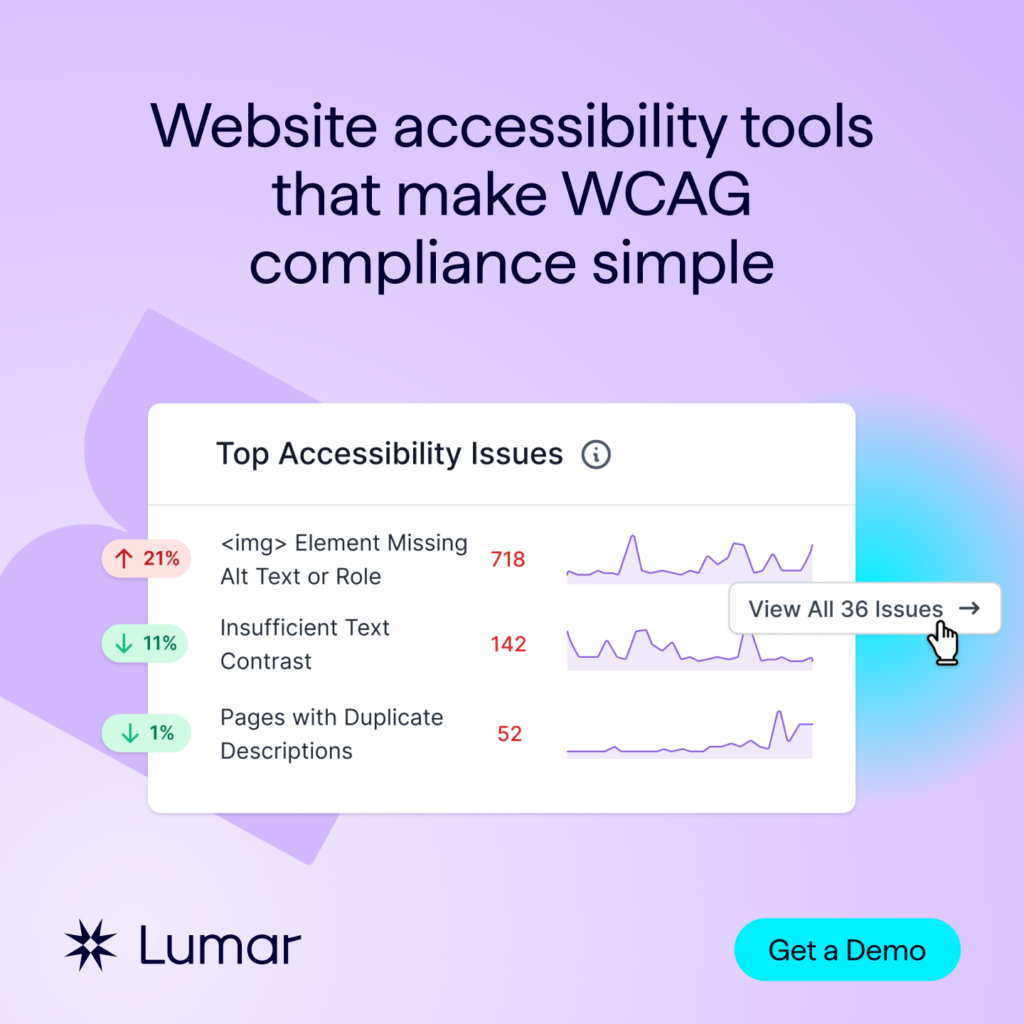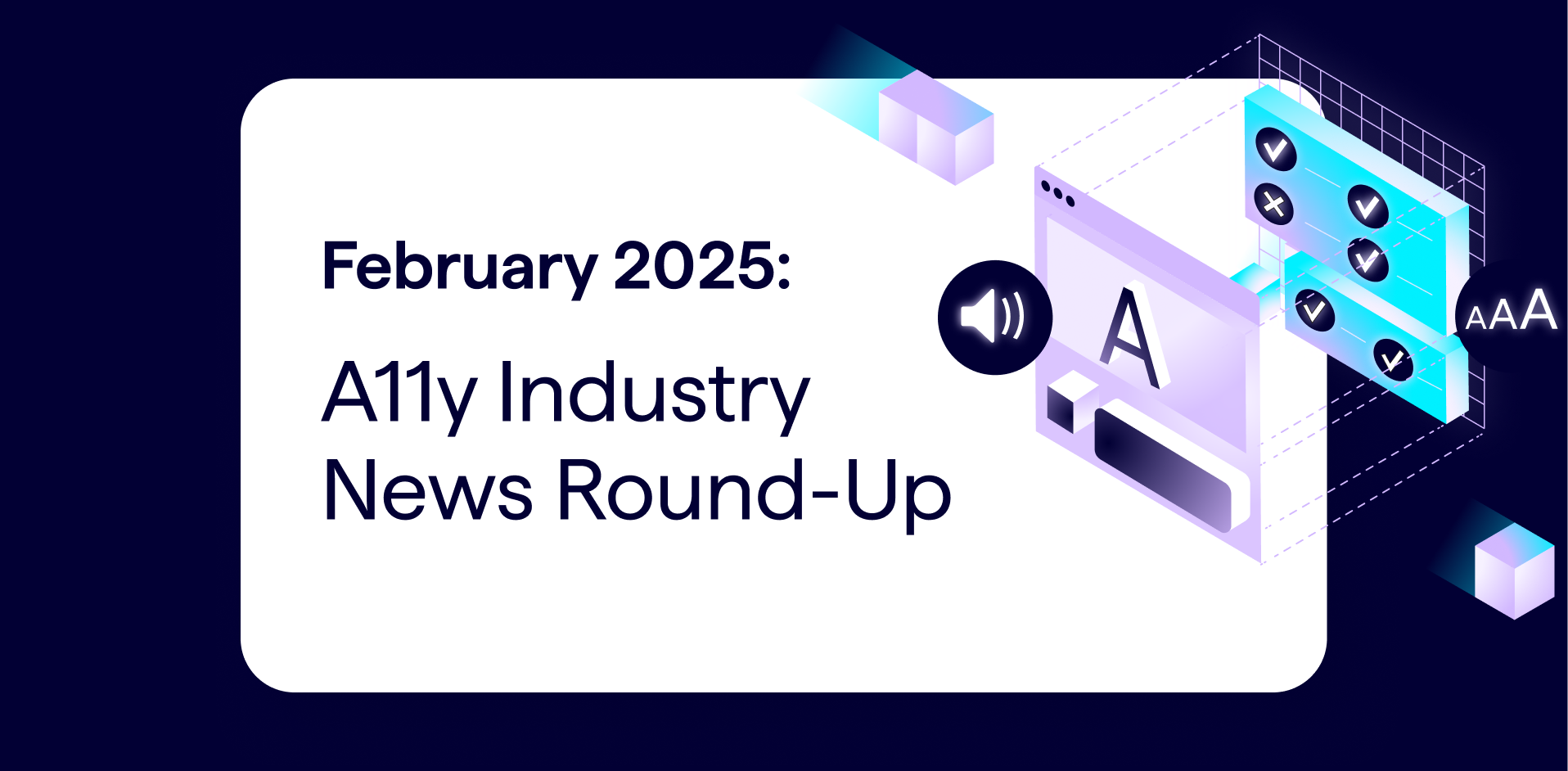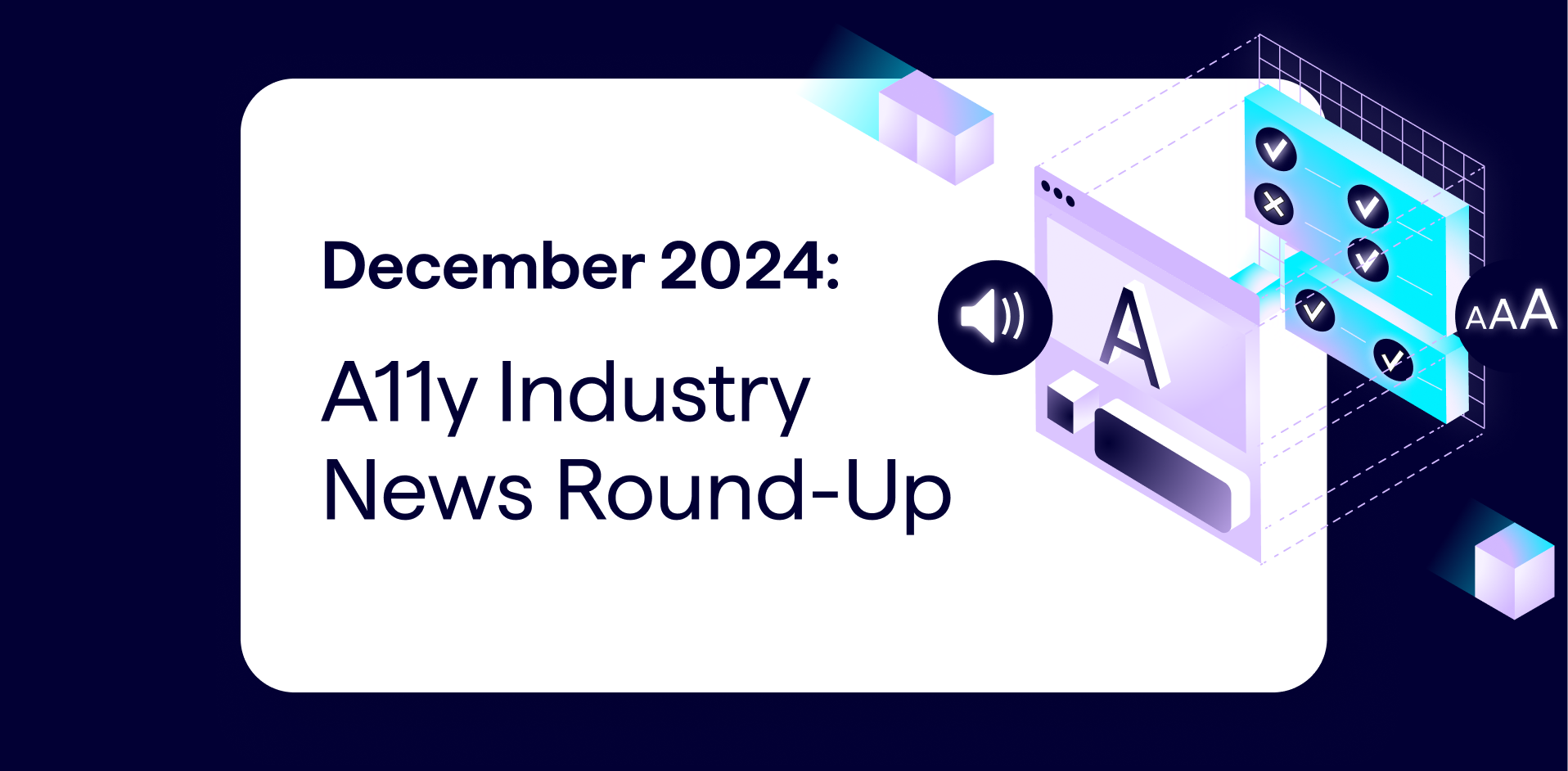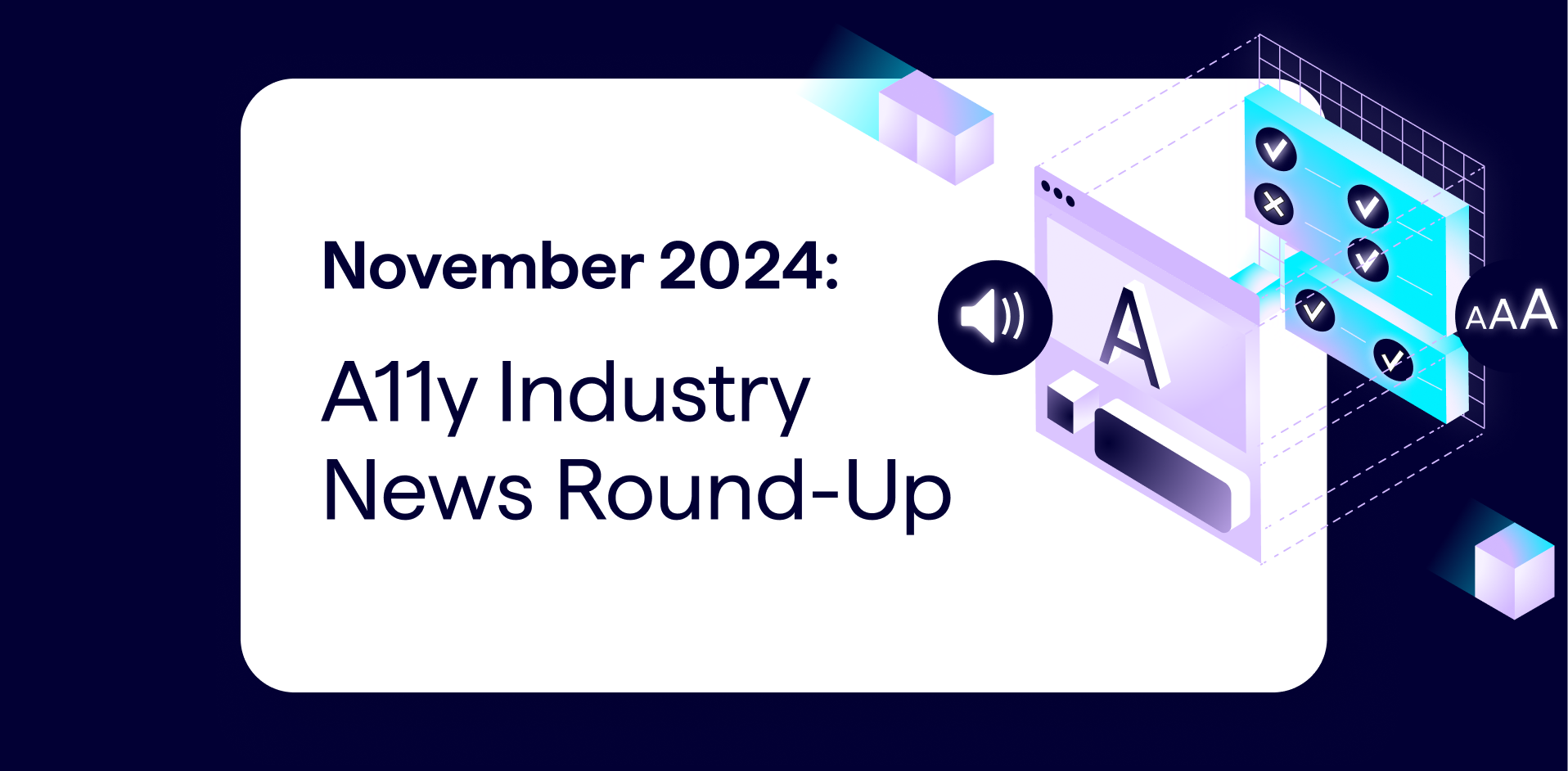What happened in digital accessibility news this month?
Each month, the Lumar team rounds up some of the top digital accessibility headlines for website managers and web accessibility professionals.
For January 2025, our a11y news roundup includes:
- 4,000+ digital accessibility lawsuits were filed in the US last year — see the breakdown and key takeaways from these legal trends below.
- Accessibility overlay company accessiBe faces more scrutiny and fines in 2025.
- WC3 is seeking feedback on WCAG 3 working draft.
- New “I Matter Too” campaign launches to drive awareness of the importance of online accessibility ahead of the June 2025 European Accessibility Act regulations.
Read on for the top digital accessibility news stories this month.
4,000+ digital accessibility lawsuits were filed in the US last year
The 2024 Year-End Report by UsabilityNet provides a detailed analysis of over 4,000 digital accessibility lawsuits, with 60% filed in federal courts and 40% in state courts. (New York leads in state filings, followed by California.)
Notably, 41% of federal lawsuits targeted companies with prior ADA violations, indicating recurring accessibility issues.
eCommerce websites accounted for 77% of cases, reflecting the complexity and frequent updates of such sites, while the food service industry comprised 11%. Among the top 500 eCommerce retailers, 30% were sued for accessibility issues in 2024, and 82% have faced ADA lawsuits since 2018. A small group of 10 plaintiff law firms handled 77% of these cases, while defense efforts were distributed among various firms.
Smaller businesses (under $25 million in annual revenue) were the focus of 67% of lawsuits, as larger companies have generally acted on past claims.
Healthcare sector accessibility lawsuits are expected to rise in 2025 due to new HHS Section 504 requirements, according to web accessibility consultants at QualityLogic.
Accessibility overlays were a significant factor in last year’s a11y lawsuits, with 1,023 lawsuits filed against companies using such tools, citing them as barriers to compliance with WCAG standards.
These legal trends highlight the persistent digital accessibility challenges across industries, with recurring offenders and smaller businesses increasingly targeted.
[Source: QualityLogic ]
accessiBe Faces More Fines for its Accessibility Overlay Tools
Accessibility overlay products, such as those created by accessiBe, have faced increasing scrutiny and legal challenges in recent years. These a11y overlay tools aim to enhance website accessibility by modifying website code in real-time, but they have often been criticized for worsening user experiences rather than improving them. Fundamental issues with overlays include their inability to address underlying website problems, serving instead as a ‘bandaid’ to the wider accessibility issues present on a given site.
According to UsableNet’s 2023 report, a11y overlays were implicated in about 30% of state and federal accessibility lawsuits in the US, and in 2024 alone, over 1,000 companies using overlays faced litigation. A survey by WebAIM revealed widespread dissatisfaction with these tools among accessibility practitioners and users with disabilities, with many rating them as ineffective or harmful.
The challenges facing accessiBe have culminated in significant legal consequences. In June 2024, the company faced a class-action lawsuit alleging that its AI-based overlays could not ensure accessibility compliance as advertised. By January 2025, the FTC proposed a $1 million settlement for deceptive advertising practices and compensating reviewers without disclosure. While some view the federal action as a step forward, others believe the settlement is insufficient, given accessiBe’s estimated $52 million revenue in 2024.
Public sentiment largely condemns accessibility overlays. The case has prompted further calls for awareness about the limitations of overlays and better solutions for web accessibility.
[Source: QualityLogic ]
US state government websites don’t meet upcoming DOJ accessibility requirements
A recent accessibility audit in the Web Almanac reveals that no U.S. state government website fully complies with the accessibility standards set by the Department of Justice (DOJ).
While Colorado achieved the highest score at 96%, followed by Vermont, Nevada, South Carolina, and Georgia—all scoring above 90%—none attained complete accessibility compliance. This evaluation focused on each state’s homepage and a secondary page, suggesting that if these primary pages fail to meet basic accessibility standards, the rest of the website likely does as well.
The urgency for compliance is heightened by the DOJ’s recent amendments to Title II regulations of the Americans with Disabilities Act (ADA), which now include specific technical requirements for web accessibility.
States have about one year to align their websites with these standards before enforcement begins in 2026. Mike Gifford, who led the government website accessibility section of the Web Almanac, emphasized that the audit covered only about one-third of the web standards mandated by the DOJ. He noted that while automated tools like Google Lighthouse provide valuable insights, they cannot capture all aspects of accessibility compliance, underscoring the need for comprehensive web accessibility evaluations to achieve full adherence to the new regulations.
[Source: StateScoop and Web Almanac – Accessibility Chapter]
WCAG 3.0 is in an exploratory phase – WC3 is seeking feedback on proposed changes
WC3’s Web Content Accessibility Guidelines (WCAG) version 3 is currently in an exploratory phase and is expected to change substantially from its initial documents before being finalized in a few years.
WC3 has called for feedback on the WCAG 3 working draft, particularly for the following updated sections:
- Image alternatives guideline
- Keyboard focus appearance guideline
- Clear meaning guideline
[Source: W3C “What We’re Working On” post, January 2025 ]
New “I Matter Too” campaign drives awareness of the importance of online accessibility ahead of the June 2025 European Accessibility Act regulations
A new campaign has been launched to drive awareness of the importance of online accessibility ahead of the June 2025 European Accessibility Act (EAA) regulations going into effect.
Nexer Digital, a human-focused research, design, and development agency, has launched the new “I Matter Too” campaign to highlight how people with disabilities use the internet, the challenges they run into while trying to visit websites, and to drive awareness about the upcoming EAA rules.
[Source: The FinTech Times / Nexer Digital]
Ready to improve accessibility on your own website?
Get a demo of Lumar’s web accessibility platform and start on your journey toward a more accessible, WCAG-compliant online experience.



